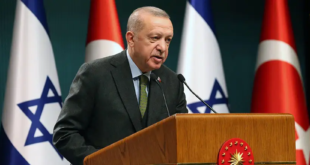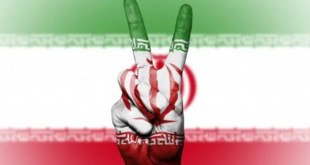DAMASCUS — Spurred by the Kurds’ political advance in Iraq, the Kurdish minority in Syria is hoping the Baath Party congress in Damascus will help resolve their problems, which have been compounded by the recent murder of one of their leaders.
In Iraq, Kurdish leader Jalal Talabani has been elected president, Kurdish parties form the second largest bloc in the new parliament and Kurds have their own assembly.
By contrast, many of the 1.5 million Kurds in neighbouring Syria feel left out of even normal daily life.
Some 200,000 of them have been denied Syrian citizenship, making it difficult for them to find work in the state-controlled economy.
“The Kurds have legitimate demands. They are raising their voices because they realise that international circumstances are more favourable (to their plight),†because of developments in Iraq, says Syrian Islamist MP Mohammed Habash.
The abduction and killing of Muslim cleric Mohammed Maashuq Khaznawi has increased tensions, triggering fresh clashes between security forces and protesters at the weekend in Qamishli, 680 kilometres from Damascus.
Several protesters were wounded and more than 50 Kurds arrested in the hometown of Khaznawi whose death was announced last Wednesday by a Kurdish leader.
On Monday, representatives of banned Kurdish parties met Arab tribal chiefs in northeastern Syria to try to calm what some Kurdish leaders have described as sectarian fighting between Arabs and Kurds.
“The problem is not with the Arabs but with the regime who push the Arabs into the conflict and use them as a tool against us,†said Kheireddin Mrad, secretary general of the Azadi, one of 11 Kurdish parties outlawed in Syria.
Yakiti Party chief Hassan Saleh said: “We want a dialogue in order to solve the Kurdish problem, particularly now that the Baath Party is holding its congress.†Kurds make up about nine per cent of Syria’s population and their leaders strongly refute any ambition to break away from the country.
“Of course what happened in Iraq has an influence (on us),†Kurdish Progressive Democrat Party leader Aziz Daud, “but we want to preserve Syrian national unity.
“We demand a solution to our problems, including (Syrian) nationality and the recognition of our cultural rights such as permission to teach in Kurdish,†he added.
Syrian President Bashar Assad opened the Baath Party congress on Monday, telling 1,200 delegates that priority had to be given to improving the living standards of the people and to battling corruption.
Iraqi Kurdish chief Massud Barzani advised Syrian authorities to heed the calls of Kurds and launch a dialogue with them “before the crisis gets worse.â€
“Kurds, wherever they are in the world, are brothers with Iraq’s Kurds and we support them,†Barzani told the Saudi-owned, London-based Al Hayat newspaper.
“We advise … to deal with this issue through a dialogue,†Barzani said, hoping his message will be heard because of the “friendly relations†between Iraq’s Kurdish leaders and the Syrian authorities.
MP Habash says “it is not in the country’s interest to delay a solution.â€
He said that unless the government stepped in quickly to defuse the tension, other parties, namely the United States, will try to exploit the situation to “step up pressure on Syria.â€
“The solution is for the state to respond to the Kurdish demands quickly in order to avoid any exploitation by foreign parties,†he said.
The MP is president of the Centre of Islamic Studies in Damascus, whose vice president was the slain Kurdish leader Khaznawi.
Habash says he is persuaded that the Syrian authorities had nothing to do with Khaznawi’s murder, despite scepticism on the Kurdish side.
The Syrian government said a “criminal gang†kidnapped Khaznawi and announced it arrested two of its members.
 Eurasia Press & News
Eurasia Press & News



